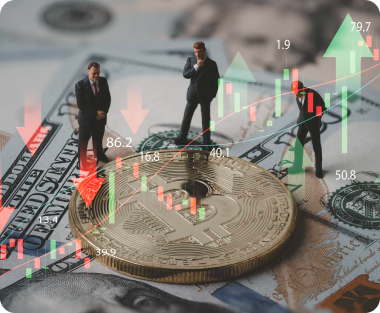

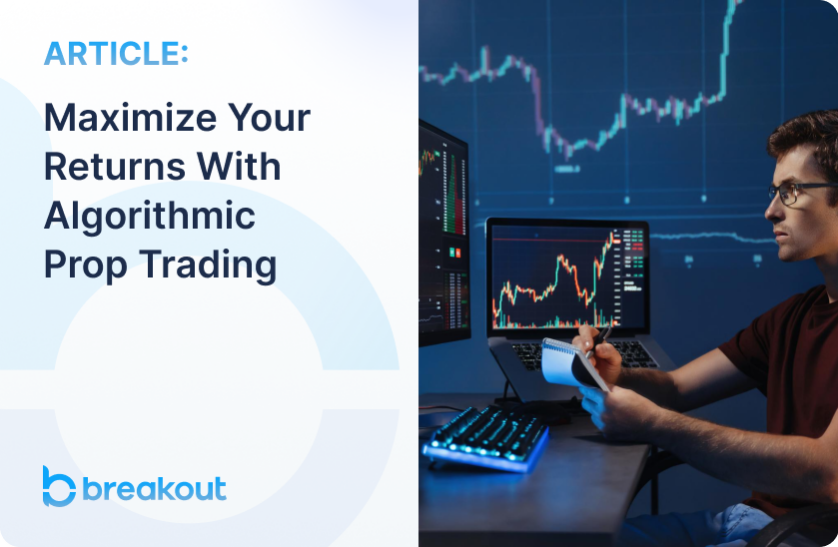
Algorithmic trading enables traders to analyze vast amounts of data and execute advanced trading strategies with speed and precision
Because algorithms execute based on predefined conditions, their usage helps to eliminate any emotional thinking or doubt
Successful application of trading algorithms demands deep understanding of market dynamics and technical infrastructure
Proprietary trading firms are increasingly employing algorithmic trading techniques to enhance their traders’ returns and performance. In the financial markets, algo trading has emerged as a powerful tool for executing trades swiftly and in high volumes, based on predefined criteria.
Proprietary trading firms provide ample initial capital to their traders, allowing them to implement their advanced trading strategies. These firms profit by retaining a portion of the profits generated by their traders, creating lucrative revenue streams that aren’t dependent on platform or transaction costs. Traders, in return, benefit from access to substantial starting capital, sometimes as much as $500,000.

Now let’s take a look at prop trading, where algorithmic trading plays a significant role. Utilizing sophisticated computer programs and harnessing the power of data analytics, algo trading helps traders analyze voluminous market data and execute trades with unmatched precision and speed. This method significantly reduces human emotions involved in making trading decisions and provides an edge over traditional methods.
Algorithmic trading leverages machine learning capabilities to dissect large quantities of historical data to identify patterns indicative of potential market opportunities. This quantitative analysis enables proprietary firms to predict market movements accurately and make investment decisions that maximize returns.
Proprietary firms have also started using high frequency trading strategies to exploit minuscule price differences across various markets for profit potential. These strategies require swift trade execution and sophisticated algorithms capable of analyzing real-time data from different exchanges; these functionalities are inherent in algorithmic trading systems.

Hedge funds and other financial institutions have also been known to use algo-trading techniques for similar purposes. These practices highlight the versatility of algorithmic trading approaches for navigating volatile markets and adapting to changing market conditions.
Algo-trading is a powerful tool that empowers prop traders to capitalize on market inefficiencies while mitigating risk management concerns. By executing trades at unparalleled speeds and with higher precision than a human trader could ever achieve, algorithmic trading offers numerous benefits to both traders and proprietary trading firms. The use of algorithmic trading strategies is indeed transforming the landscape of prop trading.
Algorithmic prop trading, a significant tool widely employed by proprietary trading firms, comprises numerous key components that enhance its robustness and efficiency. In algorithmic trading, data analysis is a cornerstone. Advanced trading strategies rely heavily on a wide array of data, including historical price movements, volume inflows and outflows, real-time market feeds, and other trading indicators, to identify potential trading signals. The ability to process and analyze this vast spectrum of market data enables traders to identify patterns that can lead to profitable trades.
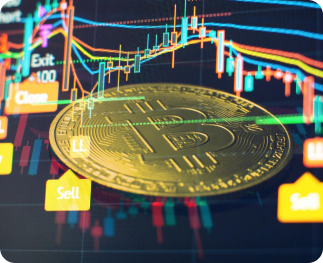
The role of backtesting in algorithmic trading is paramount. Prior to the actual deployment of a trading algorithm in the financial markets, it undergoes rigorous backtesting against historical data. This essential step helps refine the algorithm, fine-tuning its capacity to execute trades based on user-defined criteria with more accuracy and precision. It also allows for a more reliable estimation of potential profitability once the algorithm is deployed with serious capital at stake.
Execution systems form another critical component of algorithmic trading. These systems are responsible for carrying out trades based on criteria set by individual traders or algo-trading firms. They need to be efficient enough to minimize transaction costs associated with slippage and market impact—factors that can erode potential profits. The ability to execute trades rapidly gives traders using these systems a competitive edge due to their ability to capitalize on fleeting market opportunities.
Risk management is an integral part of algorithmic prop trading as well. Algorithms are capable of incorporating risk factors into their trading strategies, ensuring positions are appropriately sized and exposures remain within predefined limits. By incorporating risk management parameters into algorithms, traders can effectively mitigate potential losses while maximizing profit potential.

The creation of advanced trading algorithms involves a blend of statistical models, quantitative analysis, and AI-based machine learning algorithms. These sophisticated algorithms have the ability to analyze real-time data from different exchanges swiftly, making them an invaluable tool for high-frequency trading where speed is of the essence.

Proprietary trading firms, including hedge funds and other financial institutions, leverage these algorithmic tools to their advantage. Prop traders are provided with these advanced trading strategies, allowing them to execute trades at unparalleled speeds and with higher precision than what a human trader could achieve. This gives them a significant market advantage, enabling them to navigate volatile markets and adapt swiftly to changing market conditions.
By seamlessly blending technology with trading acumen, algorithmic trading empowers prop traders to capitalize on market inefficiencies while addressing risk management concerns. Its ability to execute trades rapidly and accurately offers numerous benefits that extend beyond individual traders to proprietary trading firms as well.
Algorithmic trading serves as a testament to the power of technological advancements in the world of finance. By offering a way to analyze vast amounts of market data quickly and accurately, it provides traders with a powerful tool for identifying profitable trading opportunities in various markets. It also enables prop firms to manage risk effectively while maximizing profit potential from their trading decisions.

Algorithmic trading has introduced unparalleled speed and precision into trade execution, granting traders an edge over others who rely solely on traditional methods. By capitalizing on short-lived market inefficiencies and mitigating risk management concerns, algorithmic trading offers immense benefits for both traders and proprietary trading firms. This approach has indeed redefined the landscape of prop trading, harnessing the power of machine learning and sophisticated algorithms for superior performance.
The utilization of algorithmic trading within proprietary trading firms allows the creation of sophisticated computer programs that can execute trades and solve complex mathematical models within milliseconds. This unrivaled speed serves as a significant competitive edge, enabling traders to capitalize on volatile markets and short-lived market conditions. These fleeting moments, often bypassed by human traders due to physical limitations, present opportunities for profit from minuscule price discrepancies that exist for mere fractions of a second.
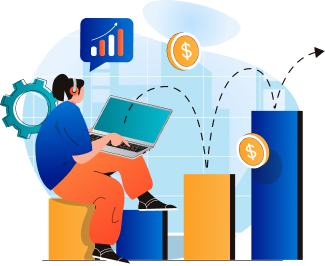
The enhanced speed and efficiency offered by algo trading are complemented by an increase in discipline and consistency. Trading algorithms operate based on predefined conditions, eliminating the influence of human emotions or indecisiveness in trading decisions. Prop traders utilizing these advanced trading strategies ensure their trades are executed irrespective of their personal circumstances or changes in financial markets.
Moreover, these trading algorithms are continuously refined and optimized over time. By integrating a broader range of market data, backtesting against historical data, and identifying patterns within market inefficiencies, these computer algorithms evolve to become more robust and accurate.
Furthermore, the design of these trading algorithms leverages the best practices from both human and machine learning techniques. Utilizing statistical analysis and quantitative models, these algorithms form a unique blend that creates an effective automated trading system. This combination leads to the creation of a high-frequency trading bot capable of executing trades based on intricate algorithmic trading strategies while completely removing the emotional element from trading.
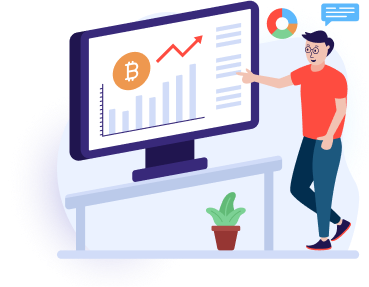
In addition to increased speed and consistency, algo trading offers numerous benefits, such as improved accuracy in trade execution, lower transaction costs due to reduced slippage, superior risk management capabilities, and enhanced market liquidity. These advantages make proprietary trading firms increasingly attractive to retail traders who wish to access such sophisticated algorithms and tools.

Lastly, the use of cutting-edge technologies like machine learning in developing these advanced algorithms helps proprietary trading firms stay ahead in the competitive world of financial markets. The continual evolution of these tools allows them to adapt swiftly to market changes and maintain a high level of trading performance, making them a preferred choice for traders aiming to maximize their profit potential.
It’s crucial to understand that not all proprietary trading firms are created equal, and their offerings can vary significantly. Some of the best prop trading firms provide their traders with the tools and opportunities to utilize sophisticated algorithmic trading strategies, while others may not. Only the top-notch prop trading firms grant their traders access to high-performance computing equipment, innovative software applications, and a swift, reliable internet connection that ensures minimal latency in executing trades.
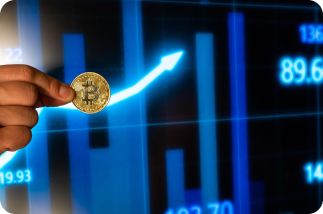
The unmatched speed and reliability offered by these top-tier firms make them a hotbed for high-frequency trading. They employ complex computer algorithms and utilize vast amounts of market data to identify trading opportunities before the competition. This gives them an edge over other market participants and allows them to make trading decisions swiftly and accurately.
These leading prop firms also strive to create a broad range of trading options for their traders. They source liquidity from top-tier centralized exchanges – this enables prop traders to access an extensive array of trading products and tools on par with any financial institution or hedge fund.
Proprietary trading firms also excel in risk management; they apply advanced trading strategies for hedging against volatile markets, ensuring they maintain a competitive edge regardless of market conditions. These comprehensive risk management strategies allow the firms to navigate through different asset classes and various markets efficiently.
Moreover, these firms optimize their trading approach based on historical data and quantitative analysis. This systematic approach helps them adapt quickly to market changes and maintain a superior track record in trade execution.
Furthermore, they utilize advanced technologies like machine learning to develop sophisticated algorithms capable of identifying patterns in historical performance. Such technological advancements give these firms an advantage in detecting and capitalizing on market inefficiencies.
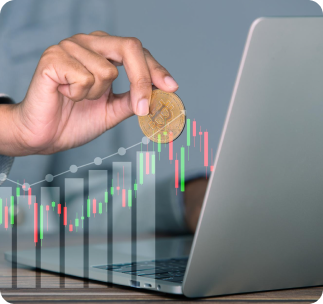
The appeal of proprietary trading extends beyond its potential for generating significant profits. It offers numerous benefits, such as the chance to operate at unparalleled speeds, make investment decisions based on mathematical models and statistical analysis, and execute trades without the influence of human emotions.
Notably, these firms also provide their traders with a competitive fee structure, further increasing their profit potential. The ability to execute trades swiftly and accurately across different exchanges not only offers an advantage in terms of speed but also in terms of reduced costs.
At the heart of these firms is the prop trader. Prop traders play a pivotal role in identifying and capitalizing on trading opportunities. They use cutting-edge algorithmic trading strategies to identify patterns in market movements and make informed trading decisions.
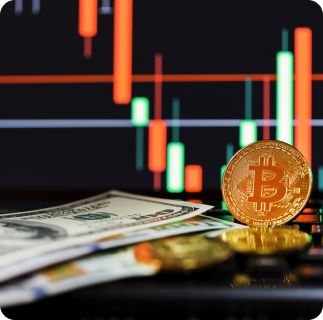
To sum up, the unique blend of advanced trading tools, sophisticated algorithms, superior risk management strategies, and access to diverse markets offered by top prop firms creates an environment that allows traders to maximize their profit potential. The continual evolution of these tools, coupled with a deep understanding of market dynamics and disciplined risk management, makes proprietary trading firms an increasingly attractive option for retail traders looking for a competitive edge in today’s fast-paced financial markets.
Algorithmic prop trading has emerged as a compelling option for traders, primarily due to its capacity to execute trades swiftly and accurately across different exchanges. This remarkable feature translates into a significant advantage in terms of speed but also in terms of reduced transaction costs, offering the potential for substantial returns.
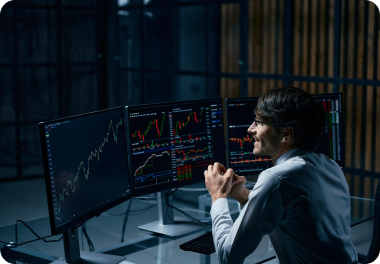
Traders employ sophisticated algorithms, part of advanced trading strategies, to decipher patterns in market movements. The use of such algorithmic trading strategies is integral to making well-informed trading decisions. This process involves deep understanding of market conditions and extensive analysis of historical data. Rigorous quantitative analysis further enhances the effectiveness of these strategies, helping traders navigate through volatile markets.
The unique blend of advanced trading tools, such as computer algorithms for automated trading and machine learning techniques for predictive analysis, grants traders a competitive edge in today’s financial markets. Furthermore, hedge funds and other financial institutions have also started implementing algorithmic trading strategies to optimize their investment decisions.
In conclusion, the combination of cutting-edge tools, sophisticated algorithms, superior risk management strategies, and access to diverse markets offered by top algo-trading firms creates an environment that enables traders to maximize their profit potential. The continuous evolution and refinement of these tools and strategies, coupled with a profound understanding of market dynamics, make proprietary trading firms an increasingly attractive option for retail traders seeking a competitive advantage in today’s fast-paced financial markets.
